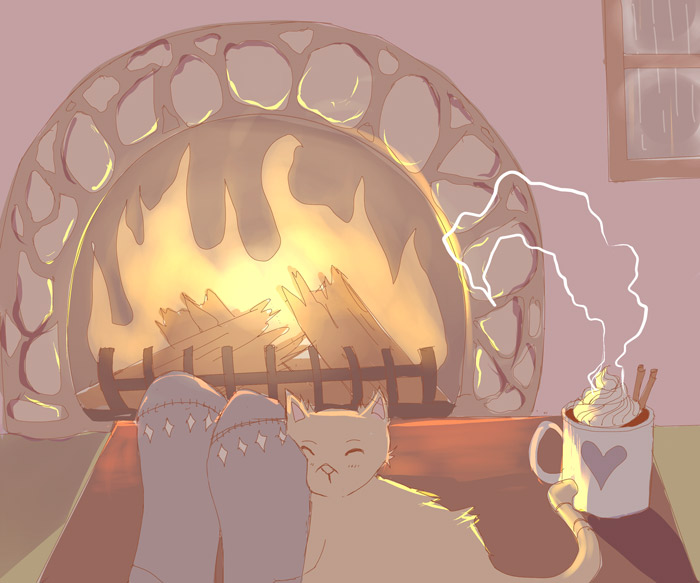Arising out of a culture that values self-love and depreciation of stress, the concept of “self-care” is vast and multi-faceted. Though there are a myriad of ways to interpret and implement the practice, one common theme underlies them all—a notion of breaking away from stress and sadness to find comfort, peace, and happiness in something.
Under the umbrella of self-care are various interpretations that manifest in popular philosophies. Among them is the “treat-yo-self” trend, originating from NBC’s Parks and Recreation. This emerging lifestyle is one of occasional indulgence, in which the cure to stress and sadness can be found by simply spending some money. Whether it’s getting brunch with friends, buying a nice leather jacket, or booking a vacation, the treat-yo-self mantra dictates that everyone deserves a treat, and often, after forking over some cash.
However one may go about self-care, there are loads of mechanisms for de-stressing from which to choose. This is the age of bath-bombs and facemasks, vino and chocolate, and candles and comfort. Yet one can’t help but wonder, is self-care really as simple as a trip to the spa, or as superficial as a face-mask? Though material items have their perks, the self-care movement seems to give them a great deal of central importance. This begs the question: What do scented candles and nail polish do for mental health, given that one can afford them?
Melissa Montana, U2 Arts, is one among many students who incorporate a self-care routine into their lives. A fan of the treat-yo-self philosophy, she views self-care as finding a balance between a demanding academic life and staying physically and mentally healthy. Even so, she affirms the importance of occasional extravagance, enjoying her share of bath-bombs and restful nights.
“Self-care means knowing that doing well in school is important, but also making sure that you take time for yourself,” Montana said. “Take those bubble-baths and listen to Beyoncé and do the things that bring you back down to earth.”
Montana is a strong advocate of allocating time just for oneself—a pertinent part of self-care—and she often spends that precious time in the gym or reading a book before bed. To her, taking care and loving oneself is about working in moderation, while leaving room for a sprinkle of indulgence in her routine.
“It’s the little things, the little pick-me-ups [that matter most],” Montana said. “You don’t need to do the whole, ‘I’m engaging in self-care’ [thing because] it’s the little things that make you happy.”
Like Montana, Ben Cantor-Adams, U2 Arts, also believes the little things really are part of the bigger picture. Being happy and healthy are the cornerstones of his own self-care practice. Instead of treating self-care as an indulgence, he focuses on cultivating sustainable and small routines, like adequate hydration, a healthy diet, and getting as much rest as he can.
Cantor-Adams’ practice is unique, as it strays away from the pressure to spend money to be happy. Often, material goods are portrayed as essential to self-care, which poses an unrealistic financial burden for many who seek mental wellness outlets. Cantor-Adams focuses on managing his time and maintaining a realistic workload to achieve both strong mental health and academic success.
“For me, it’s mainly about knowing my own limits and trying to respect those limits while also getting work done,” Cantor-Adams said. “I guess the way that I practice self-care is to always make sure that I’m keeping track of how much time it realistically takes me to do things, and making sure that I have enough time for everything that I’m trying to do.”
As a university student, Cantor-Adams values his time. Like every undergraduate student at McGill, he is often inundated with papers and tests, barely finding the time for a regular shower and enough sleep.
“Something that I’ve learned, being in university, is that time is everything and everything takes time,” Cantor-Adams said. “[…] It’s not necessarily how you spend the time, it’s that you’re taking that time to relax, to do something you enjoy, to do something that’s not necessarily work or a source of stress. It’s letting yourself do things that feel good without necessarily feeling bad about it.”
The rise in this love-yourself and treat-yo-self rhetoric is only the beginning of the self-care sensation—in a stressful university environment and a seemingly eternally-cold northern climate, taking time for oneself is essential to creating a balanced life. The fact that it is so novel to do so says a lot about the pressures of university life, in which mental health and levels of happiness are often eclipsed by academic pressures and life stressors. Yet self-care offers a respite from these and other lows of life, serving as a unique glimpse into the good.
Though self-care practices can be valuable for maintaining good mental health, this is not a substitute for formal treatment, such as therapy or medication. To find out more about mental health services available on campus, visit the McGill University Health Centre at www.muhc.ca, or the Peer Support Centre at www.ssmu.mcgill.ca/psc/.








